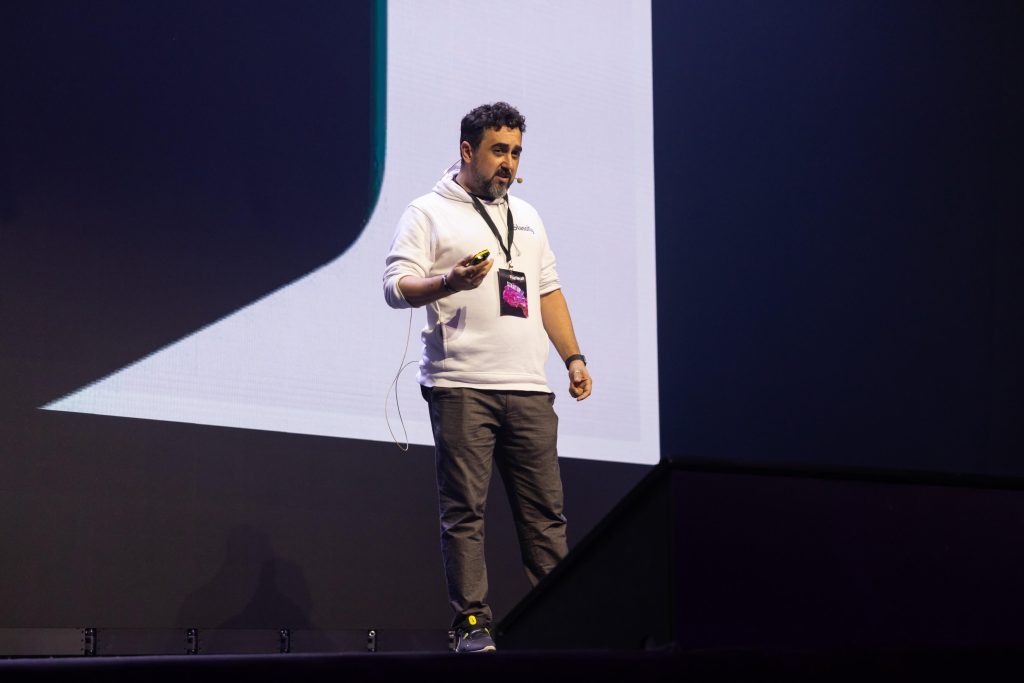e-residents drive 38% of estonia’s thriving startup scene
The e-Residency programme offers a unique competitive advantage to Estonia's startup ecosystem, attracting international talent. Currently, 38% of companies in the Estonian startup sector are connected with e-residents.

Eve Peeterson, head of Startup Estonia, which develops Estonia's startup ecosystem, emphasizes the critical role of e-Residency in shaping Estonia into one of the world's most exciting and innovative startup ecosystems, as it attracts the attention of many startup entrepreneurs. "The programme strongly conveys the message of Estonia's open business environment, empowering cross-border experience and the birth of new unique solutions," said Peeterson.
Startup entrepreneurs often operate between multiple countries, and the advantages of e-Residency became particularly evident during pandemic restrictions. "E-Residency is often the first step for a foreign citizen on the journey to becoming an Estonian startup entrepreneur, as it allows for managing a growing company regardless of location. No other country offers a comparable convenience to startup entrepreneurs," Peeterson explained.
Eve Peeterson, head of Startup EstoniaE-Residency is often the first step for a foreign citizen on the journey to becoming an Estonian startup entrepreneur.
In 2023, e-residents founded nearly 4,600 new Estonian companies, accounting for almost one in five businesses established in Estonia. Many new e-resident companies grow into startups over time: Estonia has over 1,500 startup sector companies, 38% of which are associated with e-residents. Of all the Estonian startups founded last year, also 38% (29 companies) were connected with e-residents. Most e-resident startups operate in the IT sector, with programming being the most popular activity. Last year, e-resident-related startup companies contributed 10.6 million euros in tax revenue to the Estonian state budget.
"The primary motivation for joining e-Residency is to start a business. Estonia is a breeding ground for startups, built on a business-friendly tax system, low bureaucracy, a secure business environment, and highly developed digital infrastructure. The high share of e-residents in Estonia's startup ecosystem confirms that we offer a competitive solution that is trusted and valued. E-Residency provides additional momentum to the growth of Estonia's startup landscape," said Liina Vahtras, CEO of the e-Residency programme.
Liina Vahtras, CEO of the e-Residency programmeThe high share of e-residents in Estonia's startup ecosystem confirms that we offer a competitive solution that is trusted and valued.
According to Vahtras, entrepreneurs are a demanding segment, and success is achieved only through bold and continuous product development. "We strive to make establishing a company in Estonia even more convenient, faster, and safer in the future. The speed of e-Residency's processes makes Estonia the preferred choice for many bright-minded startup entrepreneurs," Vahtras added. "E-Residency opens the door to talent and foreign capital that drives the economy, as startups, by growing and generating profits in Estonia, contribute to our economy," she emphasized.
Jose Ernesto Suarez Font, a Spanish e-resident, CEO, and co-founder of Glassity, decided to establish his company in Estonia due to the strong startup community, open economic environment, and e-Residency. "The supportive network and the ability to handle all important business processes digitally is a huge advantage. Thanks to e-Residency, our recent fundraising was rapid and convenient, as all necessary signatures and approvals for the documents were obtained digitally. No one had to print anything, visit a notary, or send documents via courier. E-Residency removes barriers, making entrepreneurship more accessible to people worldwide," he said. Suarez Font also highlighted Estonia as a model of effective collaboration between the private and public sectors in empowering the startup community. "Estonia has the wind in its sails, and e-Residency is a great example of innovation and courage. This mindset is a magnet for startup entrepreneurs," noted Suarez Font.
Jose Ernesto Suarez Font, a Spanish e-resident, CEO, and co-founder of GlassityE-Residency removes barriers, making entrepreneurship more accessible to people worldwide.
Estonia launched the world’s first e-Residency programme at the end of 2014, with the aim of providing non-residents safe access to its fully digital public services. Over the years, over 114,000 people from 185 countries have been granted e-resident status with more than 60,000 e-resident digital ID cards currently in use. E-residents have set up more than 30,600 companies in Estonia, establishing 20% of all new Estonian companies annually.
Since its launch, e-Residency has generated more than 229 million euros in direct revenue for the Estonian state budget through tax revenue and state fees. The programme also generates indirect revenue through the growth of Estonian companies listed on the e-Residency Marketplace, offering business, financial, insurance and other consulting services to e-resident founders.
More from e-Residency
- Sign up for our newsletter
- Watch fresh video content - subscribe to our Youtube channel
- Meet our team and e-residents - register for our next Live Q&A